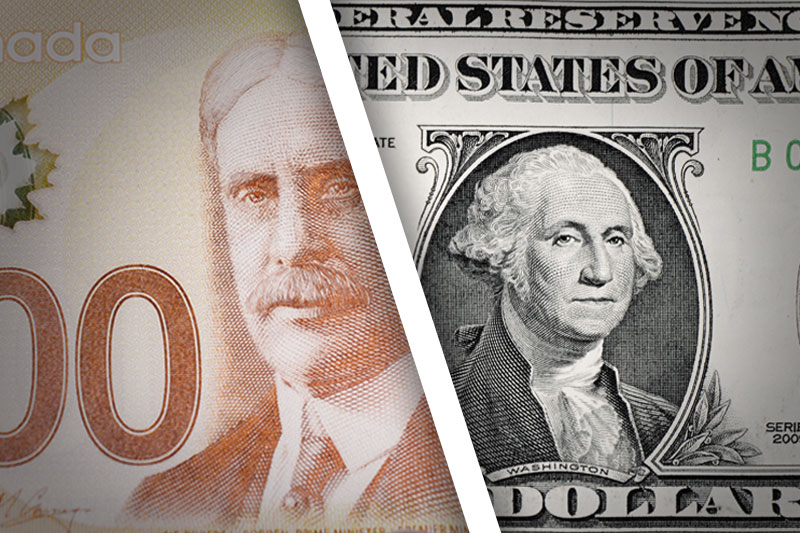Investing.com’s stocks of the week
Investing.com - The U.S. dollar edged lower against the Canadian dollar on Monday as politicians in Washington remained deadlocked over a deal to raise the U.S. debt ceiling, fuelling concerns over the risk of an imminent U.S. debt default.
USD/CAD hit 1.0342 during early U.S. trade, the session low; the pair subsequently consolidated at 1.0351, dipping 0.06%.
The pair was likely to find support at 1.0330 and resistance at 1.0406, the high of October 9.
The greenback weakened after President Barack Obama rejected Republican proposals for a short-term debt ceiling increase over the weekend.
If a deal to raise the federal borrowing limit is not struck ahead of Thursday’s deadline, the U.S. will face an unprecedented sovereign debt default.
World finance ministers and central bank heads in Washington for the annual meeting of the International Monetary Fund and World Bank over the weekend called for “urgent action” to break the deadlock, warning of the negative impact on the global economic recovery.
Trade volumes were expected to remain thin on Monday with markets in Canada closed for the Thanksgiving holiday, while U.S. treasury markets were closed for the Columbus Day holiday.
Elsewhere, the loonie, as the Canadian dollar is also known, was lower against the euro, with EUR/CAD rising 0.27% to 1.4061.
In the euro zone, data on Monday showed that industrial production rose 1% in August, coming in above expectations for a 0.8% increase.
USD/CAD hit 1.0342 during early U.S. trade, the session low; the pair subsequently consolidated at 1.0351, dipping 0.06%.
The pair was likely to find support at 1.0330 and resistance at 1.0406, the high of October 9.
The greenback weakened after President Barack Obama rejected Republican proposals for a short-term debt ceiling increase over the weekend.
If a deal to raise the federal borrowing limit is not struck ahead of Thursday’s deadline, the U.S. will face an unprecedented sovereign debt default.
World finance ministers and central bank heads in Washington for the annual meeting of the International Monetary Fund and World Bank over the weekend called for “urgent action” to break the deadlock, warning of the negative impact on the global economic recovery.
Trade volumes were expected to remain thin on Monday with markets in Canada closed for the Thanksgiving holiday, while U.S. treasury markets were closed for the Columbus Day holiday.
Elsewhere, the loonie, as the Canadian dollar is also known, was lower against the euro, with EUR/CAD rising 0.27% to 1.4061.
In the euro zone, data on Monday showed that industrial production rose 1% in August, coming in above expectations for a 0.8% increase.
